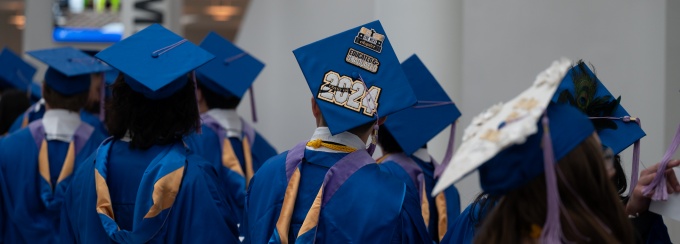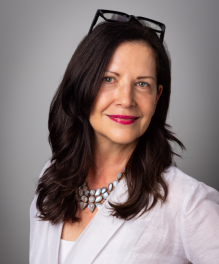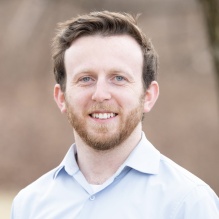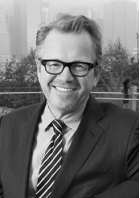Commencement 2024

On May 17, 2024, the School of Architecture and Planning graduated its 52nd class. Photos by Onion Studio
52nd Commencement Ceremony
On May 17, 2024, more than 190 graduates crossed the stage as the 52nd graduating class of the School of Architecture and Planning. Graduates and their families and friends, along with distinguished guests, joined together at UB's Center for the Arts.
View an accessible PDF of the commencement program for the UB School of Architecture & Planning Ceremony, including a listing of all graduates in the Class of 2024.
ON THIS PAGE
Photo Gallery
Photos by Onion Studio
Keynote address

Julia Czerniak
Dean and SUNY Distinguished Professor
Julia Czerniak hosted her inaugural Commencement as Dean of the School of Architecture and Planning at the University at Buffalo, delivering this year's keynote address. Educated as both an architect (Princeton, Master of Architecture 1992) and a landscape architect (Penn State, Bachelor of Science in Landscape Architecture), Czerniak's extensive research and practice at the intersection of these disciplines offered an inspiring message for the graduating class.
As the School of Architecture & Planning’s new dean, I feel very honored—and humbled—for the opportunity to address you.
Today we celebrate all of you—a remarkable group of students who have dedicated yourselves to the magnificent and meaningful disciplines and professions of Architecture, Planning, and Environmental Design.
In preparing my theme for today's address, I was reminded of the profound opportunity that comes with the fields you’ve chosen—the opportunity to shape the built environment across scale and time in ways that are both visionary and humane, intelligent and kind, resilient and just.
Today is not just a celebration of your hard work and dedication; it is a projection of futures yet to come. And it is these futures that I would like to consider…
In the short time I have been here at the school—I’ve seen you—Class of 2024:
- I’ve seen your creativity and commitment in studios
- Your curiosity and gratitude in public lectures and events
- Your professionalism at reviews (masking, perhaps, a bit of nervousness)
- Your kindness to your classmates
- Your sheer joy at Award’s Day
- And even your abandon at the Beaux Arts Ball.
These experiences, emotions and accomplishments will soon be part of the past—but the friendships you have built, the knowledge you have accumulated, and the memories you have made—in the spaces and places of UB: Hayes and Parker, the Annexes and for a brief time Crosby—will serve you into the future.
So, let’s talk about the future through my theme today: ‘Radical Optimism.’
You might have heard that phrase before.
If you google it, you will see that it’s the title of the recent album by English-Albanian singer Dua Lipa. She came across the term through a group of European anthropologists who sought to understand—by cherishing and embracing difference—what it is to be human, especially in these challenging times in our world and on our planet.
I first read the phrase on the website ‘Learning for Justice,’ in an article by a middle school English teacher—Chad Donohue— who points out that, and I quote him:
“Optimism is the belief that the future holds possibilities. When juxtaposed to the more popular cynicism, pessimism and sarcasm, optimism appears positively radical.”
So, what does this mean?
Well, to be conventional is to be logical, analytic, and to focus on the existing; to be radical is to dare to venture beyond constraints, fostering creativity, innovation, and growth. To be radical is to think, and act, deliberately and consciously.
Taken together with optimism— here, hopefulness about the future—'radical optimism’ is a mindset that counters the paralyzing effects of planetary anxiety. It is a mindset that not only acknowledges the immense progress in our world over the last century—but the courage to believe that a better future—a just, sustainable, and resilient one—is possible if we can envision it, something we designers know all about.
For me, radical optimism is the ability to carry forward amidst the negative noise of the everyday world— to recall the positive aspects of the past, to hold a hopeful view of the future, and to act in empowering ways each day.
This theme intersects with what data scientist and author Hannah Ritchie argues in her recent book, Not the End of the World: How we can be the first generation to build a sustainable planet.
In it she outlines what she calls the “remarkable progress humanity has made” in the 20th & 21st centuries on metric after metric: from the advancement of clean technologies like solar and wind; to the rapid decarbonization of electricity and transport; to transformations in food production and advances in health care and education.
If Ritchie is looking back at our past progress, what might we expect to see if we look forward, to the future, say 2050?
In 2050—a little over 25 years from now—many of you, graduates, will be in both mid-career and midlife. And despite the challenges faced, humanity will have achieved remarkable progress, thanks in part to the efforts and impacts of our disciplines and professions.
Let’s take an optimistic peek at the future I am imagining for you:
It’s 2050. The world's population has reached 10 billion people. Due to advances in medical research and improvements in healthcare, we are all living longer, healthier lives. Most of us live in urban areas—mega-cities from coast to coast that, thankfully, leave land open for other uses and other species. Our design of smart-city infrastructure has improved urban—and public life— from optimized energy use to dynamic critical thinking to impactful citizen engagement.
Twenty-five years from now, Technology has transformed nearly every aspect of our lives. Artificial Intelligence, robotics, and automation are deeply integrated into our society, reshaping how we learn, work—and even interact. We have succeeded in making technology a powerful force for positive change with innovations that address pressing social and environmental challenges. Generative AI has produced provocative work in art, design and literature and AI driven solutions have optimized resource allocation, improved disaster response, and enhanced educational delivery systems.
We are already at work on this here at UB.
It’s 2050. Our efforts to address the climate crisis have paid off. Renewable energy sources such as solar and wind power dominate the energy landscape, while green building materials are standard in the construction of your work. Sustainable transportation such as electric and autonomous vehicles are playing a crucial role in reducing carbon emissions and—thanks to this— air quality has improved dramatically around the globe. We notice less extreme weather, less flooding, less fire.
After a quarter century of such conservation efforts and sustainable practices in our design and planning fields, biodiversity is booming. Endangered species now thrive in their natural habitats, and ecosystems are flourishing. Protected areas such as national parks, marine reserves, and wildlife sanctuaries are expanded and linked and provide critical habitat for flora and fauna. Our renewed natural world brings us joy and reaffirms our collective commitment to planetary cohabitation.
It’s 2050. And thanks to citizen designers like you, we celebrate diversity as a source of strength and richness, rather than division. Through reforms, initiatives, and investments, we have dismantled the inequities in our cities, choosing instead to celebrate differences. By doing so we have harnessed the full talent and drive of all our valued and respected inhabitants.
These are just a few glimpses of the bright future I hope awaits you.
Sound a bit optimistic? It is! And your education here at UB has equipped you with the knowledge, the skills, and the opportunities to create that future.
For Design, by its very nature, is optimistic—radically optimistic.
We are not confined to what exists…we imagine new worlds—and through our words and our work—we catalyze, shape, and build them.
Design is not just a profession or a skill set; it is a way of seeing the world and a catalyst for change. Design, in its many forms, affects every aspect of our lives: from our systems of government to our interpersonal relationships; from the products we use to the spaces we inhabit.
It is not just your technical skills, your critical capabilities, your aesthetic sensibilities, and your compassion for inclusion that sets you apart, but your capacity to recognize the transformative power of design: the power to inspire, the power to unite and the power to catalyze positive change.
Yes… the future poses significant challenges. We are all aware of them and confront them daily.
There will be times when you are not okay—and that is okay, too.
But if you leave today with courage and conviction—armed with the mindset of radical optimism to venture beyond constraints, and the power of design as a guiding principle for living a purposeful life—you will shape a brighter future for yourselves and for generations to come.
Transformative change isn't just a possibility—it's a reality—and I am struck by the immense potential and capacity that lies within each of you.
Congratulations, University at Buffalo School of Architecture and Planning graduates.
The world awaits your brilliance.
Thank you!

Matthew Kinnally (MA Arch '24)
Commencement student speaker
Matthew Kinnally, a member of the MA in Architecture Class of 2024, served as Student Speaker, reflecting on his experience at UB’s School of Architecture and Planning. In his address, he emphasized the importance of support, care, and creativity among classmates. He urged graduates to be the positive force in others' lives, emphasizing the impact of small gestures and the collective effort to make the world a better place.
Dear fellow graduates, Provost Weber, Dean Czerniak, distinguished guests, faculty, friends and family:
I’d like to begin by saying it is an honor to be a part of the Graduating Class of 2024. I began my journey at UB as a freshman who was both indecisive as well as a constant procrastinator. Now six years later, I am speaking to you as a Masters graduate... who wrote this speech right before the due date because I wasn’t sure if this was something I wanted to do.
That being said, my time at UB has been a transformative experience: A time where I was able to try new things, learn more about myself, and be surrounded by some of the greatest people I have ever met.
A few years ago, I stumbled across a quote from the Greek philosopher Heraclitus:
“No person ever steps in the same river twice. For it is not the same river, and they are not the same person.”
The world outside has changed during our time at UB, and it’s fair to say that we all have too. We have been challenged throughout our academic journey, and will continue to face challenges in whatever adventures lie next. But I think, at least for some of us, that not only have we been challenged, but also supported, and perhaps even inspired.
The support we have received has come from all directions: from the dedicated faculty and staff on this stage, the friends and family behind you, and your peers sitting at your side. While this degree is something you have earned, you likely did not earn it alone. However, you should be proud of yourself today. You have worked hard, and earned this degree through years of dedication.
At this point in a commencement speech, the speaker typically gives advice to their fellow graduates. This is tricky for me, as I’m often the one asking for guidance. So instead, I’ll share a few moments with you from my time at UB:
During my sophomore year, I hit a point where I felt unmotivated, unsure if I was truly happy with what I was doing. My professor at the time picked up on this, and offered to meet with me after class to discuss my interests, to see if they had any ideas or people they could connect me with.
A few years later, in my final semester of undergrad, I felt a bit burnt out. This time, I had a professor who would consistently greet their students with pure joy, just happy to see them. This same professor taped a good luck note on the door of my final presentation room.
And I could tell you enough stories about my friends to last five speeches. But just know that not only their support, but also their care, drive, and creativity continue to inspire me today.
And so, my fellow classmates, this is my advice to you: Be THAT person in someone else’s story. Support one another, because small gestures can go a long way, and it’s nice to know that someone’s in your corner. In a world that’s constantly changing, let's try our hardest to change it for the better. Thank you all for your time, and congratulations to the Graduating Class of 2024.
Awards
Department of Architecture
Alpha Rho Chi Medal: Pouya Pakkhesal (BA Arch '24)
ARCC/King Student Medal for Excellence in Architectural and Environmental Research: Aqsa Rafi (MArch '24)
AIA Medal for Academic Excellence: Alec C. Harrigan (MArch '24)
Department of Urban and Regional Planning
MUP Best Professional Project Award: Johnathan Bartol (MUP '24)
MUP Best Thesis Award: Bethany Greenaway (MUP '24)
MUP Best International Thesis Award: Viyona Mangessh Chavan (MUP '24)
MUP Best Dissertation Award: Chihuangji Herbert Wang (PhD '24)
AICP Planning Excellence Award: Colin Curry (MUP '24)
Dean's Medal Winners
This year, we were honored to present the Dean's Medal - the highest honor bestowed by the School - to Michael Van Valkenburg. Who has made significant contributions to the fields of architecture and planning.

Michael Van Valkenburgh
Michael Van Valkenburgh, founder and Creative Director of MVVA, is celebrated in landscape architecture. As a Professor Emeritus at Harvard University’s Graduate School of Design and a Fellow at the American Academy in Rome, he's received accolades for design leadership, including the Arnold W. Brunner Memorial Prize. His firm's global projects, like revitalizing Buffalo's waterfront into the Ralph C. Wilson, Jr. Centennial Park, promise enhanced community engagement, wildlife habitat preservation, and flood mitigation, setting new standards for public space design.
- #UBClassOf2024
- #UBuffalo
- #UBSAP